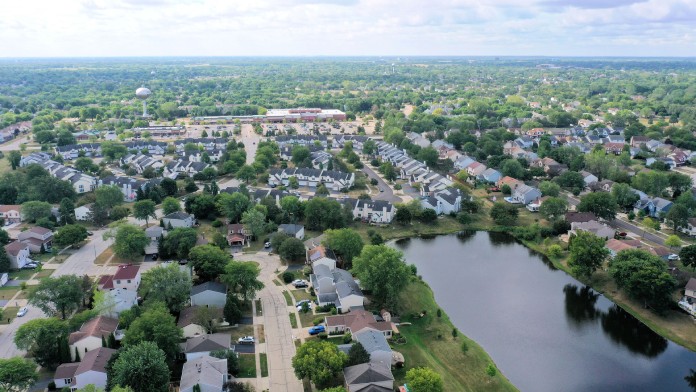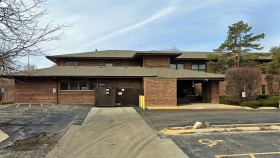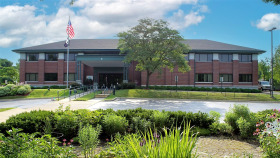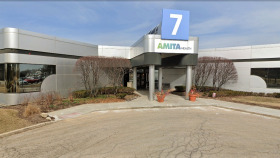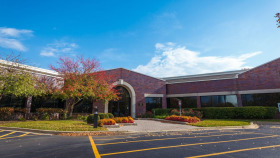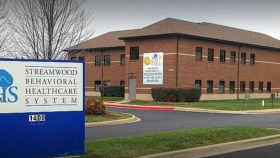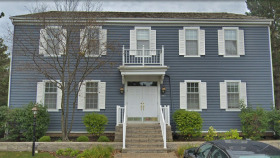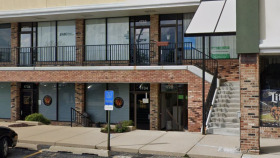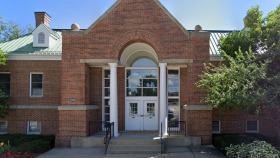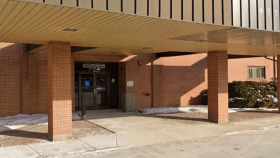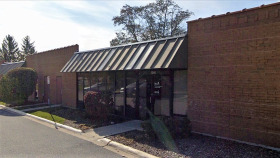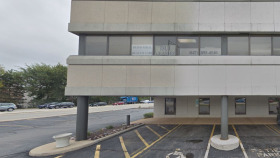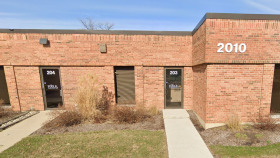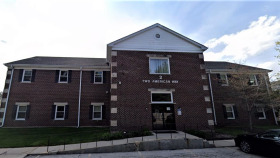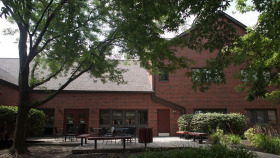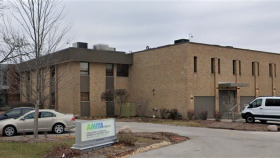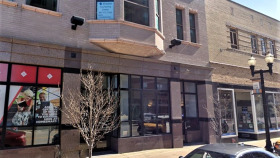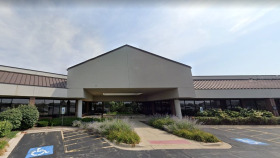Substance Addiction Statistics in Hoffman Estates, IL
To report drug use statistics more accurately, the Cook County Department of Public Health separates Chicago from the rest of the county and releases data for what it calls Suburban Cook County. Here’s a look at drug and alcohol use statistics for Suburban Cook County and Hoffman Estates:1,3
- Of the 17 opioid-involved overdose deaths reported in Hoffman Estates between 2016 and 2020, 71% were men, and 88% were white.
65%Fentanyl was involved in 65% of the deaths, while heroin was involved in 29%.
- Across Suburban Cook County, 1,885 people died from an opioid-involved overdose between 2016 and 2020.
27%27% of those deaths happened in northern Suburban Cook County, which includes Hoffman Estates.
64%64% of them involved fentanyl.
72%72% were men, and 68% were white.
86.3%86.3% of the deaths involved more than one type of drug.
Levels of Care for Rehabs in Illinois
For many Illinois residents, addiction treatment is a process of moving through multiple levels of treatment, from most to least intensive. For others, only the least restrictive levels are required.
Detox
Detox is the process of safely clearing your system of all drugs and alcohol. It occurs in a supervised setting to manage withdrawal symptoms. This process is often necessary before Illinois residents can enter a formal treatment program.
Residential or Inpatient
Residential or inpatient treatment is the most intensive treatment setting, involving 24/7 care. Medication, individual and family therapy, and recreational therapy are common forms of treatment at this level.
Partial Hospitalization Programs (PHPs)
In a PHP, participants receive much the same services as an inpatient program, but they return home during non-treatment times.
Intensive Outpatient Programs (IOPs)
IOPs are a step down from PHPs. These programs provide several hours of treatment over several days per week. Treatment usually includes individual and group therapy.
Standard Outpatient
Standard outpatient programs are the least intensive level of treatment. They require only two or three hours of care per week, usually at an outpatient clinic or therapist’s office. This option is appropriate for those with a strong support system who are highly motivated.
Aftercare
Also called relapse prevention, aftercare is focused on providing ongoing support for continued sobriety once a treatment program is complete. Aftercare can include 12-step meetings, transitional housing, therapy, and other supports.
How to Pay for Addiction Treatment in Hoffman Estates, Illinois
Private Insurance
By law, all insurance companies must provide at least some coverage for substance abuse treatment. However, each plan differs, so Illinois residents must contact their provider to discover precisely what is covered by their plan. Deductibles and copays may apply.
Illinois Medicaid
Illinois Medicaid is a government program that provides health insurance for low-income individuals and families. To be eligible, Illinois residents must be a U.S. national, citizen, permanent resident, or legal alien, in need of health care/insurance assistance, and characterized as low income. They must also be either pregnant, responsible for a child 18 years or younger, blind, have a disability or family member with a disability, or be 65 years or older.
Illinois Medicare
Medicare is a federal health insurance program that provides coverage for Illinois residents aged 65 and older, as well as individuals with certain disabilities. Some forms of addiction treatment are covered under Medicare Part A, while other services are covered under Part B. Not all rehab facilities accept Medicare as a form of payment, so it’s important to confirm Medicare acceptance before starting a program.
TRICARE in Illinois
TRICARE in Illinois provides health insurance coverage for U.S. military personnel, veterans, and their families. This includes substance use disorder treatment services; however, plans differ in their specific coverage.
Sliding Scale Rehabs
State-funded rehab centers use government funds to help pay for treatment for Illinois residents who are otherwise unable to afford it due to lack of income or lack of insurance coverage. To get into a state-funded rehab, residents can contact the Illinois Health and Human Services Department for assistance.
IHS-Funded Drug Rehabs
The Indian Health Service (IHS) is a federally-funded program that provides health coverage for indigenous people. Under this program, Native Americans and Native Alaskans who need SUD treatment can receive low-cost or free services, even if they have other insurance coverage.

Getting to and Around Hoffman Estates, IL
If you’re considering an inpatient, outpatient, or detox center in Hoffman Estates for drug or alcohol rehab or will be in town visiting someone who is getting addiction treatment in or near the village, here is a look at what to expect when staying in Hoffman Estates:
- Hoffman Estates is located along Interstate 90, just a short distance from downtown Chicago.
- The closest major airport is O’Hare International Airport, which is 14 miles away.
- Several Pace Bus routes run through Hoffman Estates. There are also Metra rail stations located in nearby Schaumburg.
- Hoffman Estates has more than 26 miles of on-street and off-street bike paths connecting its business parks, commercial areas, and residential neighborhoods.
- There are more than 1,200 hotel rooms in the village featuring 8 hotel chains.
- Golf fans can choose from 3 courses in the village.
- Hoffman Estates has more than 4,000 acres of forest preserves run by the Forest Preserve District of Cook County. You can enjoy walking trails and bike paths.
- Check out a sporting event or show at the NOW Arena, a multi-purpose family entertainment, cultural, and sports center.
- Hoffman Estates has more than 60 restaurants to meet every taste and budget.
Illinois Drug and Alcohol Laws
Illinois policy makers have established the following laws regarding substances:1,2,3,4
Drug Possession: In Illinois, possession of drugs (except cannabis) is a felony in all cases. Felony charges can lead to jail time and a lifelong felony record.
Good Samaritan Law: The Emergency Medical Services Access Law of 2012 is the Good Samaritan Law in Illinois. This law is designed to encourage people to seek emergency medical assistance when someone is overdosing. If an Illinois resident calls 911 or brings someone to an emergency room for an overdose, both the victim who is overdosing and the person seeking help are protected from being prosecuted for felony possession of small amounts of drugs.
Pretrial Fairness Act: Effective Jan 1, 2023, this law gives police officers who catch people with small amounts of drugs discretion to release them with a citation that orders them to appear in court within three weeks. This is a change from the previous law which put that person immediately in jail for a few days until they were brought before a judge
DUI Laws: “Driving Under the Influence” is defined as “operating a motor vehicle while impaired by alcohol, other drugs, including cannabis (marijuana) prescribed for medical purposes, or intoxicating compounds and methamphetamine.” In Illinois, drivers are considered under the influence if they have a BAC of .08 or higher, have a THC concentration of either 5 nanograms or more per milliliter of whole blood or 10 nanograms or more per milliliter of other bodily substance, have used any other controlled substance, or are impaired by medication. A first conviction of DUI is a Class A misdemeanor with a minimum penalty of revocation of driving privileges for one year and suspension of vehicle registration.
Resources
- Cook County Department of Public Health. (n.d.). SCC Opioid-Involved Overdose Deaths in 2020.
- Chicago Tribune. (2015, October 6). Cops: Hoffman Estates police administer Narcan to unconscious man.
- Cook County Department of Public Health. (2020). Opioid Epidemic in Suburban Cook County.
- University of Wisconsin Population Health Institute. (2022). County Health Rankings – Cook.

